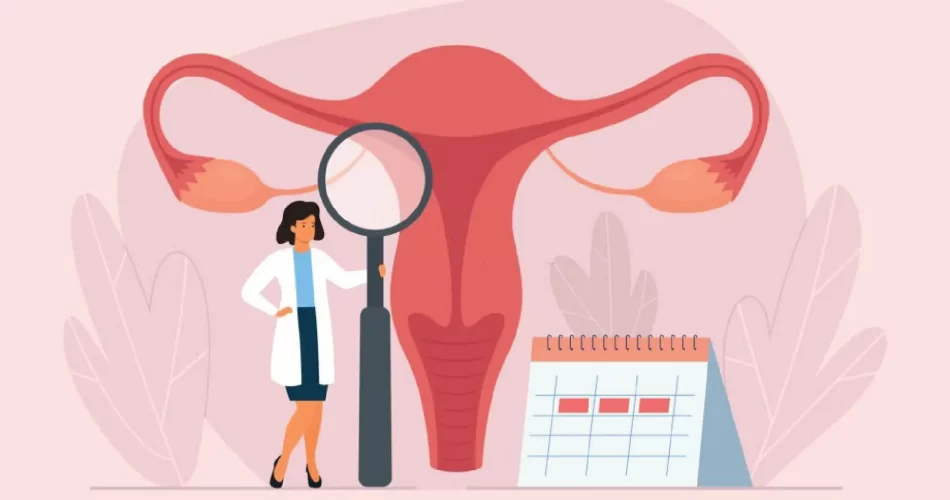Pre-pregnancy discharge is normal. It is also known as leukorrhea.
It is a thin, clear or milky white liquid that comes out of the vagina.
It is caused by the body producing estrogen, which stimulates the cervix and vagina to produce more mucus.
Pre-pregnancy discharge can vary in amount from woman to woman.
It is usually heaviest in the middle of the menstrual cycle, around ovulation.
It can also increase during sexual arousal and when you are pregnant.
When it comes to family planning and preparing for pregnancy, it’s crucial to consider all aspects of your health, and that includes pre-pregnancy discharge.
While it might not be a topic that everyone openly discusses, understanding it is vital, especially in South Africa.
In this blog post, we’ll take a closer look at pre-pregnancy discharge, why it matters, and what you need to know.
Key Facts
- Pre-pregnancy discharge, also known as leukorrhea, is normal and consists of clear or milky white vaginal fluid.
- It’s influenced by hormones, sexual arousal, pregnancy, infections, and certain medical conditions.
- Understanding and monitoring pre-pregnancy discharge is crucial for pregnancy planning and women’s health.
- Precautions include wearing cotton underwear, avoiding synthetics, and practicing good hygiene.
- Seek medical advice if you notice unusual changes in discharge, discomfort, or other concerning symptoms.
- Open discussions and regular check-ups are essential for supporting women’s health in South Africa and globally.
The Basics Of Pre-Pregnancy Discharge

Before we dive into the details, let’s start with the basics.
Pre-pregnancy discharge is the fluid that comes out of your vagina.
It’s completely natural and part of your body’s way of keeping your reproductive system healthy.
During different stages of your menstrual cycle, the amount and texture of discharge can vary.
It can range from clear and watery to white and creamy, and it’s all perfectly normal.
Factors Influencing Pre-Pregnancy Discharge

- Hormones: Estrogen levels fluctuate throughout the menstrual cycle, and this can affect the amount and consistency of discharge. Discharge is usually heaviest in the middle of the cycle, around ovulation, when estrogen levels are highest.
- Sexual arousal: Sexual arousal can also increase discharge. This is because the vagina produces more mucus to help lubricate it.
- Pregnancy: If you are pregnant, you may experience an increase in discharge. This is because the body produces more mucus to help protect the fetus from infection.
- Infections: Certain infections, such as yeast infections and sexually transmitted infections (STIs), can also cause changes in vaginal discharge.
- Other medical conditions: Some medical conditions, such as diabetes and vaginosis, can also cause changes in vaginal discharge.
Pregnancy Planning And Pre-Pregnancy Discharge

Pregnancy planning is an important step in becoming a parent.
It is a time to get your body and mind ready for pregnancy and to make sure that you are in the best possible health to have a healthy baby.
One of the things you can do to prepare for pregnancy is to pay attention to your pre-pregnancy discharge.
Pre-pregnancy discharge is a normal part of the menstrual cycle, but there are some things to look for that could indicate a problem.
Here are some tips for monitoring your pre-pregnancy discharge:
- Pay attention to the color, consistency, and smell of your discharge. Normal discharge is clear or milky white and has a mild odor.
- Chart your discharge throughout your menstrual cycle to see if there are any patterns.
- Be aware of any changes in your discharge, such as a sudden increase in the amount or a change in color or consistency.
Precautions
Here are some precautions you can take to manage pre-pregnancy discharge:
- Wear loose-fitting, cotton underwear.
- Avoid wearing synthetic fabrics, such as nylon or polyester.
- Change your underwear and panty liners or pads frequently.
- Wash your genital area with warm water and mild soap once or twice a day.
- Avoid using douches or scented soaps.
When To Seek Medical Advice

If you experience:
- Unusual changes in the color, odor, or consistency of your discharge.
- Persistent itching, burning, or discomfort.
- Pain during intercourse.
- Blood in your discharge when it’s not your period.
Don’t hesitate to seek advice from a healthcare professional.
Early detection and treatment can prevent complications down the line.
Conclusion
In South Africa, as well as globally, discussing and understanding pre-pregnancy discharge is vital for overall reproductive health.
It’s a topic that often goes undiscussed but shouldn’t be overlooked.
By being proactive and seeking professional guidance when needed, you can ensure your reproductive health is in the best possible shape as you embark on your pregnancy journey.
Open discussions and regular check-ups will go a long way in supporting women’s health in South Africa and beyond.










